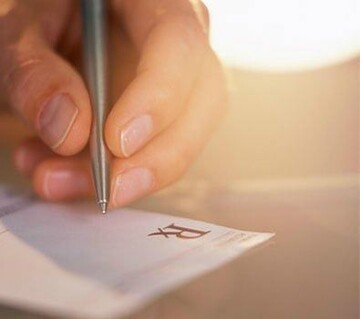Oral Surgery
The best material for a bone graft is your own bone, which most likely will come from your chin, the back part of your lower jaw or your hip bone. The hip is considered to be a better source because the hip bone has a lot of marrow, which contains bone-forming cells. There are also synthetic materials that can be used for bone grafting. To place the removed bone in the recipient site, little holes are drilled in the existing bone to cause bleeding. This is done because blood provides cells that help the bone heal. The block of bone that was removed will be anchored in place with titanium screws. A mixture of the patient's bone marrow and some other bone-graft material will then be placed around the edges of the bone block. Finally, a membrane is placed over the area and the incision closed. The bone graft will take about 6 to 12 months to heal before dental implants can be placed. At that time, the titanium screws used to anchor the bone block in place will be removed before the implant is placed.
Tooth loss occurs for many reasons; dental decay, root canal problems, fractures, periodontal disease and trauma. Additionally at times teeth never develop. As a result of tooth loss the bone melts away. If there is inadequate bone to support surrounding teeth and future possible dental implant(s), bone grafting materials are used to rebuild and regenerate the bone providing sufficient bone in quantity and quality for implant placements and supporting tooth structure.
Dr. King is an experienced tooth extraction dentist in Glen Rock. When the extraction of a tooth is required:
1) An incision in the gums is made
2) The tooth is removed
3) The area is stitched up and is allowed to heal
During this time, it is important to think about a tooth replacement option. An extracted tooth leaves an open area in the jaw which, in time, allows the neighboring teeth to drift into the area where the tooth was extracted. This in turn, causes a chain reaction to all the surrounding teeth. Also, if you are considering placing an implant in the future, you should consider asking your dentist to place a bone graft at the time of surgery to preserve the bone width and height.
After tooth extraction, it’s important for a blood clot to form to stop the bleeding and begin the healing process. We ask you to bite on a gauze pad in the tooth extraction area for 30 minutes after the appointment. If the bleeding or oozing persists, repeat the process. After the blood clot forms, it is important not to dislodge the clot. Do not rinse vigorously, suck on straws, smoke, drink alcohol or brush teeth next to the extraction site for 72 hours. These activities will dislodge the clot. Limit vigorous exercise for the next 24 hours as this will increase blood pressure and may cause more bleeding from the extraction site.
After the tooth is extracted you may feel some pain and experience some swelling. An ice pack applied to the area 20 minutes on, 20 minutes off, will keep swelling to a minimum. Take pain medications as prescribed by Peter King, DDS. The swelling will usually subside in about 48 hours.
Use the pain medication as directed. Call the office if the medication doesn't seem to be working. If antibiotics are prescribed, continue to take them for the indicated length of time, even if signs and symptoms of infection are gone. Drink lots of fluid and eat nutritious soft food on the day of the extraction. You can eat normally as soon as you are comfortable.
It's important to resume your normal dental routine after 24 hours. This should include brushing and flossing your teeth at least twice a day. This will speed healing and help keep your mouth fresh and clean.
After a few days you will feel fine and can resume your normal activities. If you have heavy bleeding, severe pain, continued swelling after 2-3 days, or a reaction to the medication, call our office immediately at 201-857-2661.
After the Removal of Multiple Teeth
BLEEDING. A small amount of bleeding is to be expected following the operation. If bleeding occurs, place a gauze pad directly over the bleeding socket and apply biting pressure for 30 minutes. If bleeding continues, a moist tea bag can be used for 30 minutes. If bleeding occurs, avoid hot liquids, exercise, and elevate the head. If bleeding persists, call our office immediately. Do not remove immediate denture unless the bleeding is severe. Expect some oozing around the side of the denture.
SWELLING. Use ice packs on the same side of the face of the surgical area. Apply ice 20 minutes on, 20 minutes off, during your waking hours for a maximum of 36 hours only. Ice does not have an effect after 36 hours. Call the office for further assistance.
DISCOMFORT. For mild discomfort use aspirin, Tylenol or any similar medication; two tablets every 3-4 hours. Ibuprofen (Advil, Motrin) 200mg can be taken 2-3 tablets every 3-4 hours. For severe pain use the prescription given to you. If the pain does not begin to subside in 2 days, or increases after 2 days, please call our office. If an antibiotic has been prescribed, finish your prescription regardless of your symptoms.
DIET. Drink plenty of fluids. If many teeth have been extracted, the blood lost at this time needs to be replaced. Drink at least six glasses of liquid the first day. Restrict your diet to liquids and soft foods, which are comfortable for you to eat. As the wounds heal, you will be able to advance your diet.
HOME HYGIENE CARE. Do not rinse your mouth for the first post-operative day, or while there is bleeding. After the first day, use a warm salt water rinse every 4 hours and following meals to flush out particles of food and debris that may lodge in the operated area. (One half teaspoon of salt in a glass of lukewarm water.). After you have seen your dentist for denture adjustment, take out denture and rinse 3 to 4 times a day.
WEARING DENTURES. The removal of many teeth at one time is quite different than the extraction of one or two teeth. Because the bone must be shaped and smoothed prior to the insertion of a denture, the following conditions may occur, all of which are considered normal:
- The area operated on will swell reaching a maximum in two days. Swelling and discoloration around the eye may occur. The application of a moist warm towel will help eliminate the discoloration quicker. The towel should be applied continuously for as long as tolerable beginning 36 hours after surgery (remember ice packs are used for the first 36 hours only).
- A sore throat may develop. The muscles of the throat are near the extraction sites. Swelling into the throat muscles can cause pain. This is normal and should subside in 2-3 days.
- If the corners of the mouth are stretched, they may dry out and crack. Your lips should be kept moist with an ointment like Vaseline. There may be a slight elevation of temperature for 24-48 hours. If temperature continues, notify our office.
If immediate dentures have been inserted, sore spots may develop. In most cases, Peter King, DDS will see you within 24-48 hours after surgery and make the necessary adjustments to relieve those sore spots. Failure to do so may result in severe denture sores, which may prolong the healing process.
Fold a piece of clean gauze into a pad thick enough to bite on and place directly on the extraction site. Apply moderate pressure by closing the teeth firmly over the pad. Maintain this pressure for about 30 minutes. If the pad becomes soaked, replace it with a clean one as necessary. Do not suck on the extraction site (as with a straw). A slight amount of blood may leak at the extraction site until a clot forms. However, if heavy bleeding continues, call your dentist. (Remember, though, that a lot of saliva and a little blood can look like a lot of bleeding).
The Blood Clot
After an extraction, a blood clot forms in the tooth socket. This clot is an important part of the normal healing process. You should therefore avoid activities that might disturb the clot.
Here's how to protect it:
- Do not smoke, rinse your mouth vigorously or drink through a straw for 24 hours.
- Do not clean the teeth next to the healing tooth socket for the rest of the day. You should, however, brush and floss your other teeth thoroughly, gently rinse your mouth afterwards.
- Limit strenuous activity for 24 hours after the extraction. This will reduce bleeding and help the blood clot to form. Get plenty of rest.
- If you have sutures, your dentist will instruct you when to return to have them removed.
Medication
Your dentist may prescribe medication to control pain and prevent infection. Use it only as directed. If the medication prescribed does not seem to work for you, do not increase the dosage. Please call your dentist immediately if you have prolonged or severe pain, swelling, bleeding, or fever.
Swelling & Pain
After a tooth is removed, you may have some discomfort and notice some swelling. You can help reduce swelling and pain by applying cold compresses to the face. An ice bag or cold, moist cloth can be used periodically. Ice should be used only for the first day. Apply heat tomorrow if needed. Be sure to follow your doctor's instructions.
Diet
After the extraction, drink lots of liquids and eat soft, nutritious foods. Avoid alcoholic beverages and hot liquids. Begin eating solid foods the next day or as soon as you can chew comfortably. For about two days, try to chew food on the side opposite the extraction site. If you are troubled by nausea and vomiting call your dentist for advice.
Rinsing
The day after the extraction, gently rinse your mouth with warm salt water (teaspoon of salt in an 8 oz. glass of warm water). Rinsing after meals is important to keep food particles away from the extraction site. Do not rinse vigorously!


